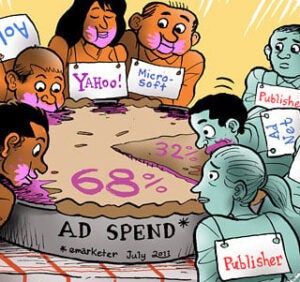 Mozilla has postponed activating the third-party blocking feature on its latest browser, Firefox 22, according to an update on its developer page. The blocking feature has been postponed “to collect data on the effect of blocking some third-party cookies,” according to the blog post.
Mozilla has postponed activating the third-party blocking feature on its latest browser, Firefox 22, according to an update on its developer page. The blocking feature has been postponed “to collect data on the effect of blocking some third-party cookies,” according to the blog post.
A Mozilla spokesperson provided the following statement: “Mozilla has been actively gathering input from users and stakeholders across the digital media ecosystem on the potential impact of the third-party cookie patch. We are ensuring proper measurement of its actual effects and will hold it in the Aurora testing build for at least one more six-week release cycle to allow for that.”
Sid Stamm, lead privacy engineer at Mozilla, shed more light on the topic, noting in a discussion forum that measuring the impact of blocking third-party cookies on Firefox’s browser, is “not as simple as we originally thought” since there is “some data structure to do and potentially [performance] concerns too.”
Jonathan Mayer, the privacy advocate and graduate student at Stanford University who designed the Firefox cookie-blocking feature, agreed, noting that Mozilla would need another release cycle to catch up on the measurements. “In particular, I’d like to improve our understanding of false positives (i.e. trusted third parties) and false negatives (e.g. untrusted first parties that are grandfathered in or that the user is temporarily redirected through),” Mayer wrote.
The Mozilla Foundation, makers of the Firefox Web browser, made headlines earlier this year when it revealed plans to block third-party advertising cookies by default on Firefox 22. Apple’s Safari browser already blocks third-party cookies. Advertising trade groups like the Association of National Advertisers have blasted Mozilla’s cookie-blocking feature, describing it as “a dangerous and highly disturbing development.”













